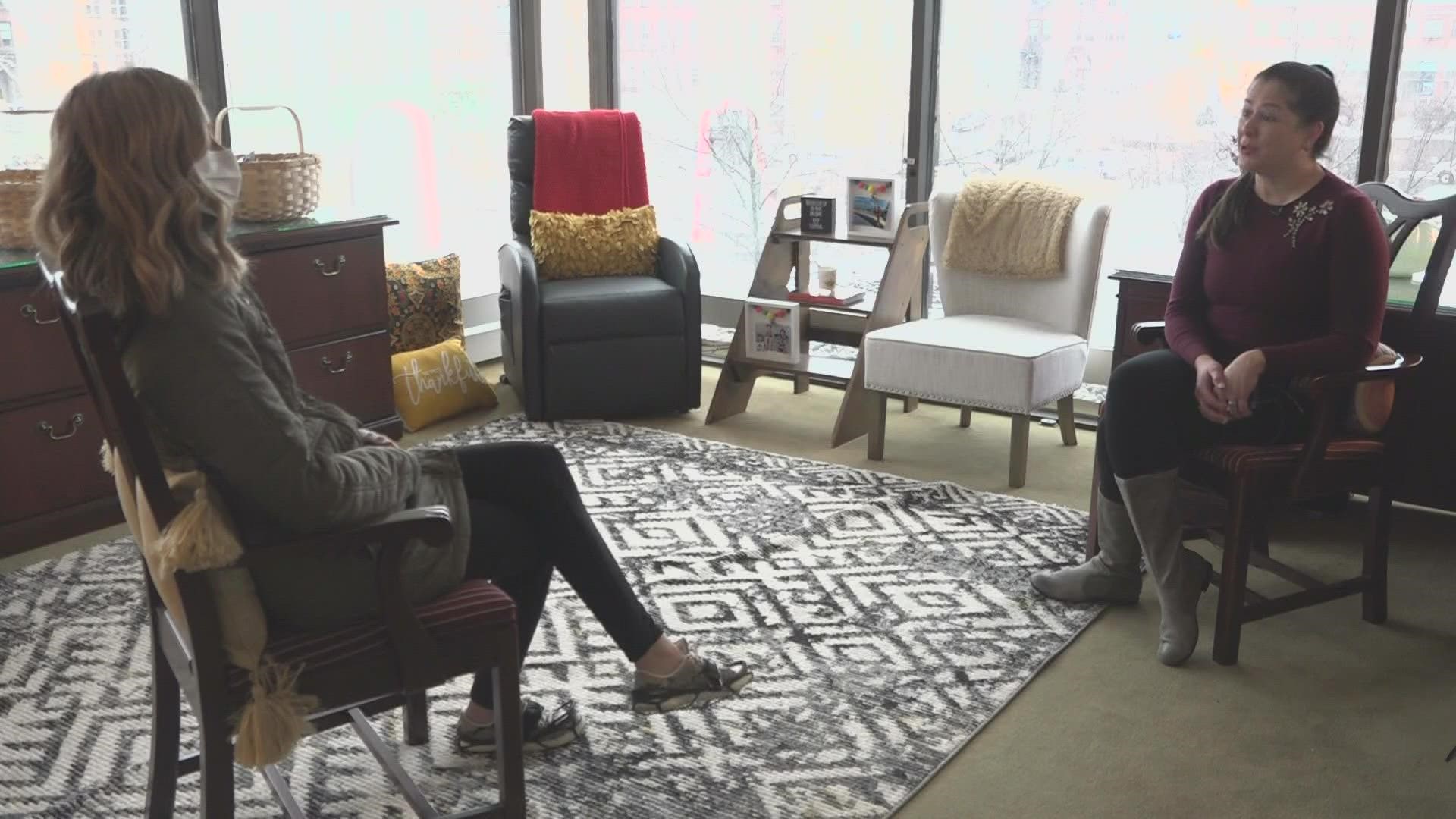MAINE, Maine — Maine will receive hundreds of millions of dollars in the coming years to battle the opioid epidemic.
It's happening as Maine and other states settle lawsuits against drug makers.
Last week, the Office of the Maine Attorney General announced the state would receive $130 million from a settlement with the drugmaker Johnson & Johnson.
In July 2021, it announced $20 million was coming to Maine from a settlement with Purdue Pharma, the maker of OxyContin.
In 2021, the state reported 578 people died from drug overdoses in Maine.
That's more than any other year on record.
The opioid epidemic is badly affecting Native American communities, but only now are federally recognized tribes in Maine in line for money to battle the crisis.
According to the Associated Press, after years of negotiations, Native American tribes have reached an opioid settlement worth over half a billion dollars with Johnson & Johnson and three other drug distributors: AmerisourceBergen, Cardinal Health, and McKesson.
RELATED: New Wabanaki Healing and Recovery Center set to open this fall
All federally recognized tribes can get money, including the four tribes in Maine, the Aroostook Band of Micmacs, the Houlton Band of Maliseet Indians, the Passamaquoddy Tribe (Indian Township and Pleasant Point), and the Penobscot Nation.
"We are disproportionately affected. We've lost many, many people from our Wabanaki communities, and so the impact of opiates is felt every day," Lisa Sockabasin, co-CEO of Wabanaki Public Health and Wellness, said.
"This settlement is an acknowledgment, an acknowledgment that harm, great harm has been done," Sockabasin said.
Corey Hinton is a tribal attorney in Maine. He said this settlement is highly significant and will help battle the opioid problem hitting the state's Wabanaki communities hard.
"Within our communities, a dollar can go far in rural Maine. And so, my hope is that those funds will help a little bit. They are certainly not going to be enough to heal all wounds and to cover all damages that these tribal communities have incurred, but they will help," Hinton said.
Hinton said in Maine, different lawsuits were submitted in 2018 by two of the tribes, the Passamaquody Tribe and Houlton Band of Maliseet Indians.
"We need opportunities to tell our stories without judgment. We need opportunities to connect to those services that heal without restriction," Sockabasin said.
RELATED: A new hub for Wabanaki women aims to share culture, teach, and support one another
Organizers from the Wabanaki Public Health and Wellness hope the Center for Wabanaki Healing and Recovery in Millinocket will open in March. It will offer services for Wabanaki community members going through recovery from addiction, as well as people hoping to connect to their culture and receive a wide variety of services.
"Our sense of urgency to open every service we can to serve our people is at its highest," Sockabasin said.
Last year, the first Wabanaki recovery home opened in Bangor. Steven Knockwood manages the home. When he was 23, Knockwood injured his back on a construction job and doctors put him on opioid pain medication. He took them for 20 years and became addicted.
"As of Dec. 21st of last year, I celebrated four years of clean time. I was released from prison, [and] slowly thereafter I started helping Wabanaki Public Health and Wellness with their opportunity house," Knockwood said.
Knockwood now guides the five men living and recovering at the home.
"The biggest thing is education in youth, youth empowerment, and just really instilling in these people that they have a voice, and their voice deserves to be heard," Knockwood said.
Knockwood said opioids have ravished tribal communities in Maine.
"Unfortunately, when you have a marginalized community, that leads to susceptibility. And until we address those problems, we are going to have continued problems within those communities," Knockwood said.
"Tribes have not always been included in very large complicated litigations. This is a game-changer in that respect," Hinton said. "The tribes had really separate settlement negotiations and a separate track for their cases to be administered. And it allowed the court to be much more receptive and sensitive to the needs of tribal communities."
Hinton said right now he doesn't know exactly how many dollars will come to Maine's four federally-recognized Native American tribes.
Hinton added the funds would be put towards reduction, preventing future addiction problems within communities, and the lingering and occurring effects in Wabanaki communities.
"Hopefully, these settlement dollars will just increase the rate in which we can create those places of healing," Sockabasin said.
Sockabasin said substance use disorder starts from a disconnection of who somebody is, a disconnection to culture in their case, to what heals them, and to each other.
"We need to offer that connection, and that, wherever you are in that journey, we need to say that we have a place for you to come and heal," Sockabasin said.
She added they need another recovery home like the one that opened in Bangor last year and a place for people to receive detox services when they need them. Both efforts are in the development phases.

